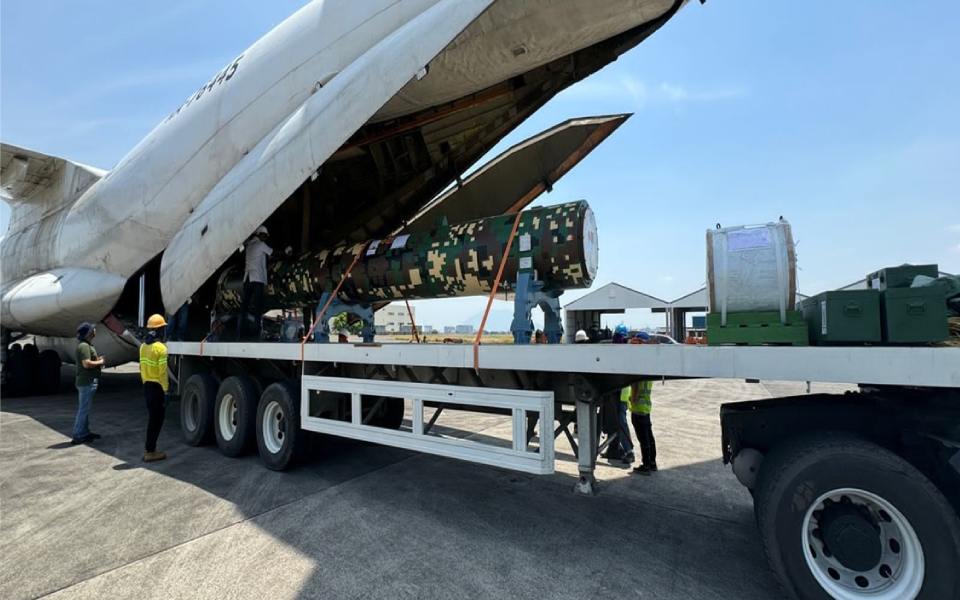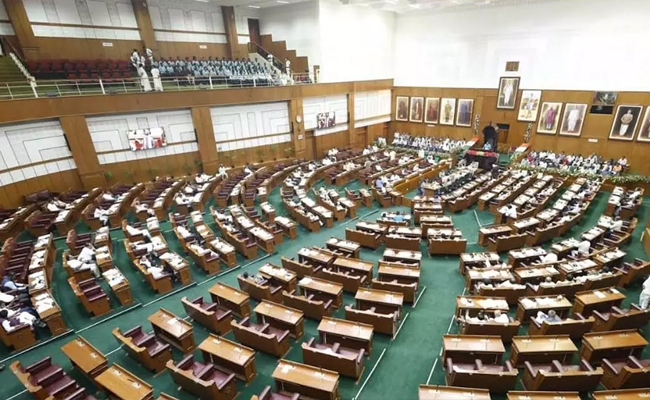New Delhi, Apr 19: India on Friday delivered the first batch of BrahMos supersonic cruise missiles to the Philippines, in reflection of the growing military ties between the two countries amid China's military muscle-flexing in the South China Sea.
The supplies came over two years India signed a USD 375 million deal with the Southeast Asian nation to supply the weapon systems.
A C-17 Globemaster transport aircraft of the Indian Air Force (IAF) transported the missile and the launchers to the Philippines for the country's marine forces, official sources said.
Under the January 2022 deal, India will supply three batteries of the missiles, their launchers and related equipment.
It was the first export of the BrahMos missile by India.
A few other countries including Argentina have also shown interest in procuring BrahMos missiles from India.
BrahMos Aerospace Pvt Ltd, an India-Russian joint venture, produces the supersonic cruise missiles that can be launched from submarines, ships, aircraft, or land platforms.
BrahMos missile flies at a speed of 2.8 Mach or almost three times the speed of sound.
India has been looking at further expanding defence ties with the Philippines against the backdrop of growing global concerns over China's increasing military assertiveness in the South China Sea.
Both India and the Philippines have been emphasising the need for peaceful settlement of disputes in the South China Sea and for adherence to international law, especially the UNCLOS (UN Convention on the Law of the Sea).
The twin sides are also favouring implementation of an arbitral award by a UN court on the South China Sea.
The UN's Permanent Court of Arbitration, adjudicating the Philippines' case against China's territorial claims in the South China Sea, ruled in favour of Manila. However, China refused to accept the verdict.
There have been growing global concerns over China's sweeping claims of sovereignty over all of the South China Sea, a huge source of hydrocarbons.
Several countries in the region including Vietnam, the Philippines and Brunei, have counterclaims.
As part of efforts to boost military ties with the Philippines, India has decided to post a defence attache to that country along with Ethiopia, Mozambique, Poland and Ivory Coast.
Watch | #BrahMos supersonic cruise Missiles delivered to the Philippines by India today
— The Times Of India (@timesofindia) April 19, 2024
The two countries had signed a deal worth USD 375 million in 2022 pic.twitter.com/Fx6aaGMk2n
Let the Truth be known. If you read VB and like VB, please be a VB Supporter and Help us deliver the Truth to one and all.
New Delhi (PTI): After the Lok Sabha witnessed a heated exchange between him and Amit Shah during a debate on election reforms, Congress leader Rahul Gandhi on Wednesday called the home minister's response "completely defensive" and asserted that "vote chori" is the "biggest treason".
The Leader of Opposition in Lok Sabha also claimed the home minister did not respond to any of the points raised by him and remained evasive including on transparent voter lists, EVMs and granting immunity to chief election commissioner.
"The home minister made a very defensive response. He did not reply to the points raised by us. It is a completely defensive response, you would have seen his face," Gandhi told reporters.
"I had asked him a few things, had asked for a transparent voter list for all, but he did not say a word about it. I had asked for providing EVM architecture to all, but he didn't say a word.
"I had said BJP leaders are voting in Haryana and Bihar, he did not speak on it. My press conference have a solid proof, but he did not speak about it," the former Congress chief said.
"The chief election commissioner is being given full immunity," he said.
The opposition MPs including Gandhi staged a walkout from the Lok Sabha during the debate on electoral reforms.
Later in a post on X, he said the home minister's response in Parliament on vote theft is "a panicked, defensive response".
"Not a single word on providing digital, machine-readable, transparent voter rolls, panic over a transparent audit of EVM architecture now, no response on BJP leaders and workers keeping and casting votes in multiple states, no response even on removing the CJI from the selection process (of ECs), absurd response on granting immunity to the EC and the excuse for not providing CCTV footage is also highly ridiculous.
"I am repeating once again - vote theft is the biggest treason," he said in a post in Hindi on X.
Earlier, in a stinging attack at the Opposition over its criticism of the SIR, Shah said they are worried because they can no longer win elections by corrupt practices and claimed that the reason for Congress' defeat in polls was its leadership and not EVMs or "vote chori".
AICC general secretary K C Venugopal also said the home minister should accept Gandhi’s challenge to discuss his press conferences that exposed "vote chori".
"He should respond to the clear-cut proof shown about how the BJP has completely hijacked the ECI and the electoral process. Tell us the time and place, Amit Shah ji. We are ready," Venugopal said on X.
Congress general secretary Priyanka Gandhi Vadra also said, "Amit Shah ji spent 1.5 hours just giving this clarification that he has not committed 'vote theft'."
"The one who is innocent does not give such a long clarification," she told reporters.





